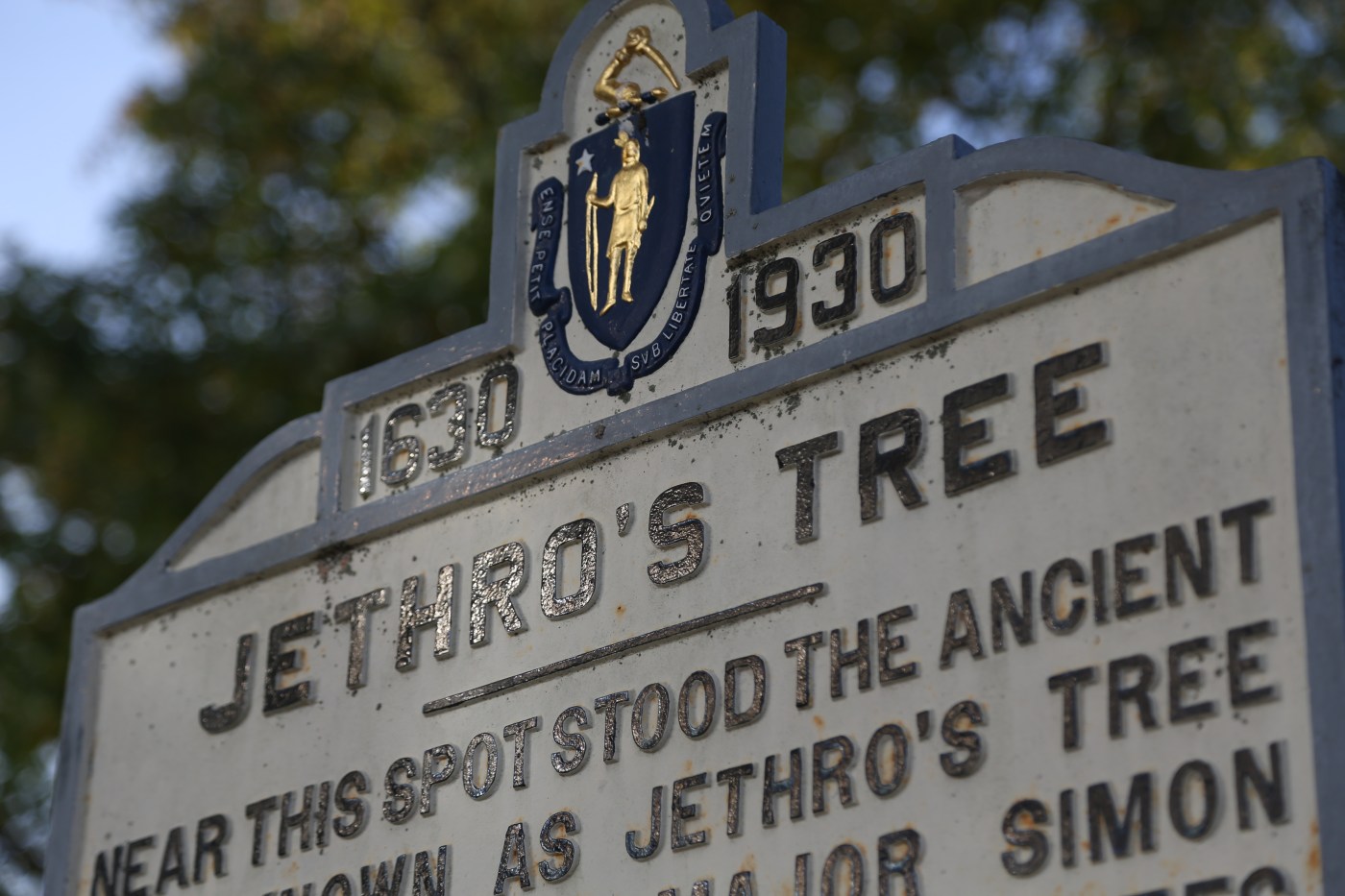
‘Problematic’ historic Massachusetts signs come down in Concord
Historical signs commemorating the founding of the Massachusetts Bay Colony no longer stand in Concord because officials say they harmed Indigenous people and didn’t reflect the town’s people today.
The so-called tercentenary markers had a place in town for nearly a century, but they came down this week after some officials fought for months for them to be removed, to create what they say is a more respectful community.
In 1930, the Massachusetts Bay Colony Tercentenary Commission distributed three markers to the town as part of an initiative recognizing the 300th anniversary of the original colony’s founding.
The Diversity, Equity and Inclusion Commission as well as the Historical Commission found the signs as “problematic and antithetical to the inclusive goals of the Town of Concord,” said Donna McIntosh, the town’s communications manager.
“Following the recommendation of the Select Board, the chairs of the DEI Commission, Historical Commission, and Historic Districts Commission have been invited to begin a conversation to discuss the interpretation and messaging on these sites, as well as a plan for the actual signs, which are period pieces,” McIntosh said in a statement to the Herald on Friday.
In total, the Massachusetts Bay Colony Tercentenary Commission placed 275 cast-iron markers in 95 cities and towns across the Commonwealth, but as time has gone on, many have been lost or fallen into a state of disrepair.
The state Department of Transportation restored 21 historic markers found in 10 cities and towns, all in central or western Massachusetts, in 2019. At the time, the agency recovered roughly 174 of the original 275 signs.
Residents and visitors gained a sense from the markers of what life was like close to four centuries ago when settlers founded the town in 1635. They highlighted an oak tree that settlers bought from Indians for the town’s incorporation, the site of an Indian fishing weir and a slope where settlers built their first dwellings.
Officials, however, say they didn’t accurately represent the town’s history. DEI Co-Chairman Joe Palumbo, during a Historical Commission meeting earlier this month, highlighted how Indigenous people have been here for 10,000 years.
“The big idea is the research and scholarship, we just know more than we did before,” Palumbo said. “There’s no fault or blame implied in the work we’re doing right now or in the past. It’s just that we know more stuff. We better change some of what we’re communicating.”
The Select Board voted in November to remove the signs temporarily for maintenance, soon after members initially decided to cover them up, according to the hyperlocal Concord Bridge.
Select Board member Mark Howell, who sits on the town’s DEI Commission, said he felt some of the language on the signs were “slurs. He ordered the DEI Commission to conduct joint research with the Historical Commission on whether to remove the signs, replace them with “more accurate, relevant content,” or incorporate them into an educational exhibit.
Historical Commission member Ryan Hanley sided with Palumbo that when there’s “better historical information” it’s “incumbent” for officials to make revisions. However, he urged the town to air on the side of caution when deciding to remove the signs or not given today’s political landscape.
“Every present moment believes that it sees better than the past. It’s incumbent upon us to remember that we too will be judged,” he said. “There has got to be a great deal of humility, a great deal of thought before rushing into anything because we are in a very complex ideological moment, and I would hate to think that we would simply want to replicate that moment.”
A sign commemorating the 300th anniversary of the colony’s founding near Monument Square in Concord. (Herald file photo)
A sign commemorating the 300th anniversary of the colony’s founding near Monument Square in Concord. (Herald file photo)


